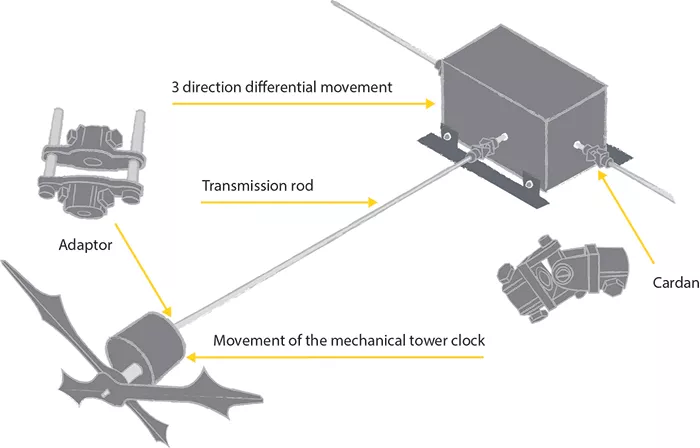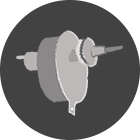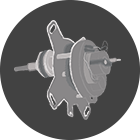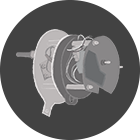Clock movements for tower clocks
For the proper functioning of your tower clocks
The clock movement has the ability to manage the position of the clock’s hands. Our clock movements are rugged and resistant to the weather conditions to which the hands will be exposed. We offer 3 types of clock movements with two different fixing systems.
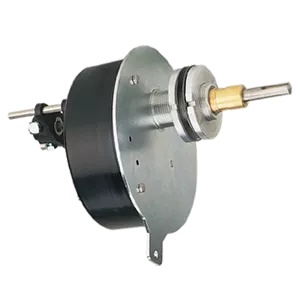
Mechanical clock movements
General features
- Hands are driven mechanically: 1 rotation per hour (minute hand)
- Shipped with a universal joint
- Operating temperature range: -40°C to +60°C
| MOVEMENT | Fixing system | Tower clock size |
|---|---|---|
| MECHANICAL CLOCK MOVEMENT 2M | Dial fixing or through the wall thanks to a long shaft | For a dial that has a diameter between 0.5 meters and 2 meters |
| MECHANICAL CLOCK MOVEMENT 4M | Through the wall thanks to a long shaft | For a dial that has a diameter between 2,1 meters and 4 meters |
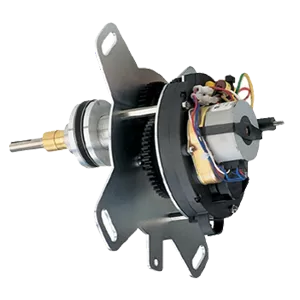
Electric clock movements
General features
- Movements are driven by a 230V AC voltage
- The hands speed is controlled by the master clock which sends an electrical impulse to the motor every minute (type D1/D2)
- Automatic time setting
- Works with a control unit
| MOVEMENT | Fixing system | Tower clock size |
|---|---|---|
| ELECTRIC CLOCK MOVEMENT 2M | Dial fixing or through the wall thanks to a long shaft | For a dial that has a diameter between 0.5 meters and 2 meters |
| ELECTRIC CLOCK MOVEMENT 4M | Through the wall thanks to a long shaft | For a dial that has a diameter between 2,1 meters and 4 meters |
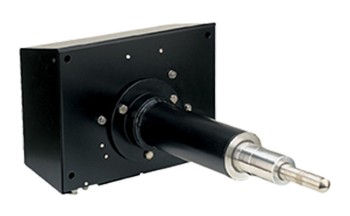
Intelligent clock movement 7M
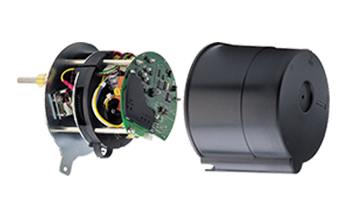
Intelligent clock movement 2M
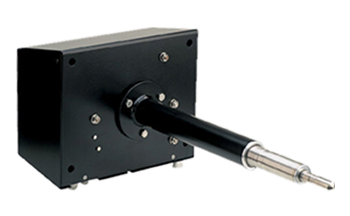
Intelligent Clock Movement 4M
Intelligent clock movements
General features
- Movements are driven by a 230V AC voltage
- The hands speed is equipped with a radio synchronisation card which continuously controls the position of the hands. 3 available versions:
- AFNOR coded time signal emitted by a master clock
- ALS or DCF radio synchronisation
- GPS synchronisation
- Automatic time setting
| MOVEMENT | Fixing system | Tower clock size |
|---|---|---|
| INTELLIGENT CLOCK MOVEMENT 2M | Dial fixing or through the wall thanks to a long shaft | For a dial that has a diameter between 0,5 meters and 2 meters |
| INTELLIGENT CLOCK MOVEMENT 4M | Through the wall thanks to a long shaft | For a dial that has a diameter between 2,1 meters and 4 meters |
| INTELLIGENT CLOCK MOVEMENT 7M | Through the wall thanks to a long shaft | For a dial that has a diameter between 4,1 meters and 7 meters |
Which fixing system should I choose?
Dial fixing
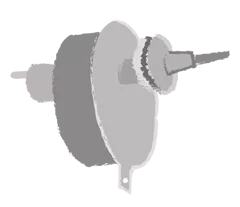
- Only for dials with a 0.5 to 2 meters diameter
- No drilling through your walls
Long shaft
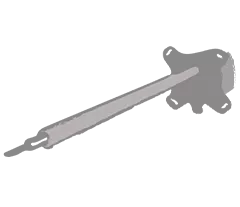
- For 0.5 to 7 meters diameter dials
- It has the strength to hold up 7 meters diameter dials
- Different shaft for drilling through different wall thicknesses
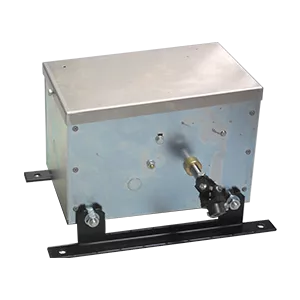
Differential movement
General features
- 230V AC motor, D1, D2 impulses controlled by a Master clock.
- Rotation speed of the shafts: 1 rotation/hour.
- Manual adjustment of the hands by disengaging the motor.
- Differential transmission of 1 to 4 shafts by mean of bevel gears.
Why should you need a differential movement?
- The differential movement enables you to synchronise 2 to 4 tower clocks at the same time.
- It is used with mechanical movements.
- It has the ability to equip dials with a diameter from 0.5 to 4 meters.
